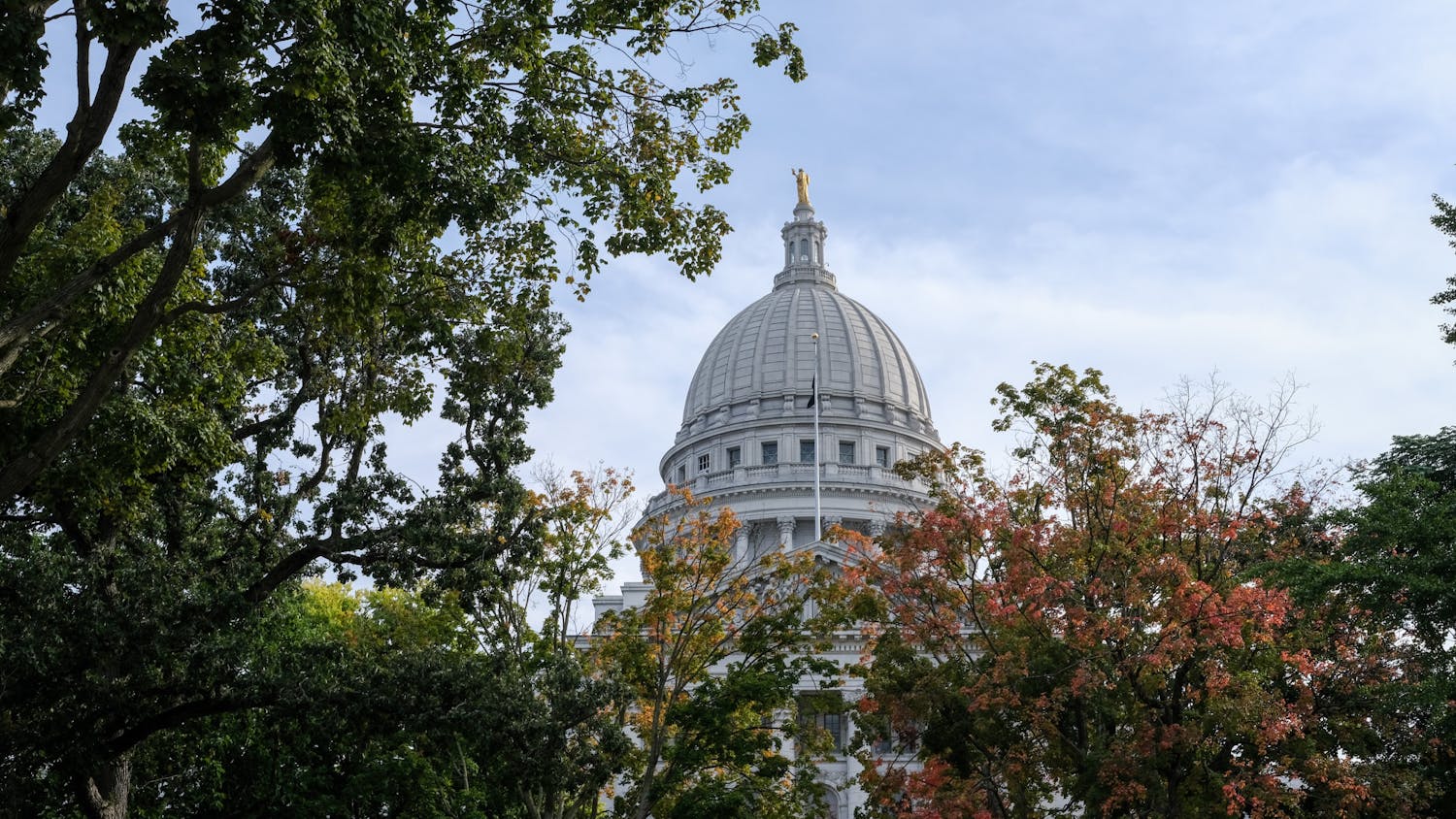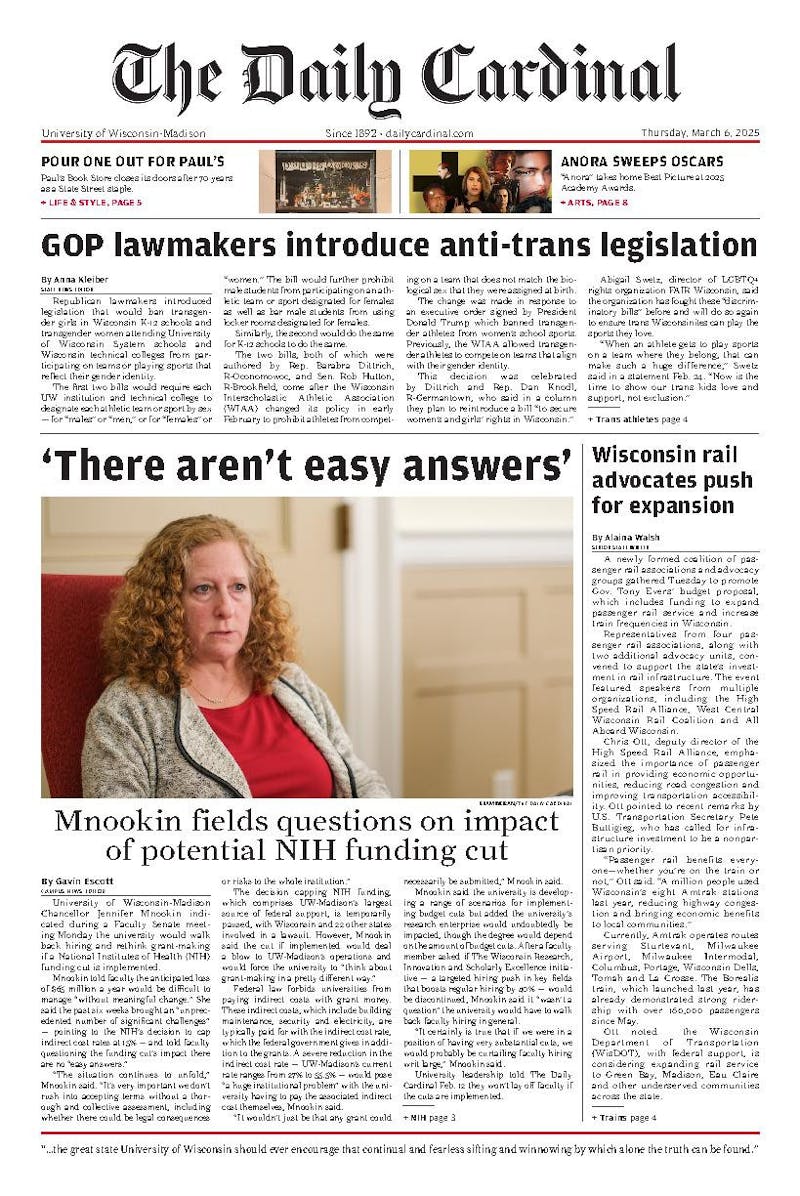The future of Wisconsin’s largest land conservation in state history is uncertain as leaders debate the project’s economic and environmental impact.
The Pelican River Forest is a roughly 70,000 acre forest and wildlife corridor in northeastern Wisconsin, east of Rhinelander.
The Conservation Fund, a national nonprofit organization dedicated to environmental preservation and economic development, bought the Pelican River Forest in 2021. The organization is now looking to purchase a conservation easement, an agreement with the state which secures a permanent protective status for the land in exchange for public access and logging rights, among others, under the Managed Forest Law program.
The $15.5 million easement would be paid for by an $11 million federal Forest Legacy Program grant, a $600,000 donation from the National Fish and Wildlife Foundation, and about $4 million from the state’s Knowles-Nelson Stewardship Program, according to WXPR.
The land was formerly owned by a logging company and has been in the Managed Forest Law program for “decades,” according to Partners in Forestry, a group supporting sustainable forestry in the Northwoods.
“The lifeblood of the economy in this region is forestry and tourism, and the Forest Legacy and the Knowles-Nelson Stewardship programs recognize and support that fact very strongly,” Partners in Forestry Director Joe Hovel told the Daily Cardinal.
“People don’t come north to see stumps and blacktop,” he added. “They come here to see blue skies, clean water and lush forests.”
The $4 million from the state requires approval from the Legislature’s Joint Finance Committee, per state law. However, an anonymous legislator on the committee vetoed the use of the Stewardship program funds needed to complete the purchase, halting progress on the Pelican River Forest project.
In a January interview with WPR, Sen. Mary Felzkowski (R-Irma) confirmed she vetoed the project, claiming there were others on the JFC who opposed it without providing names. Felzkowski expressed concerns that the Pelican River Forest, which lies within her district, would reduce tax revenues for the local governments near the forest.
“When we continuously take land off of the property tax rolls, we lower the revenues that come into the local units of government. It hinders their ability to provide services for the local residents: ambulance, fire, EMS, roads, that's all done off the property tax rolls,” Felzkowski told WXPR in January.
Wisconsin’s state government has managed the state’s forest resources to some effect since 1867, when the state created a commission to study forest destruction. Since then, it has hired foresters, supported forestry education programs and created property tax relief legislation for forested properties.
The Knowles-Nelson Stewardship Program is another part of that tradition. Created in 1989, the program acquires land for public use to preserve natural areas and wildlife habitats, protect water quality and support outdoor recreation, according to the Department of Natural Resources website.
Wisconsin’s Office of Outdoor Recreation estimates outdoor recreation adds $7.8 billion to Wisconsin’s GDP annually and supports 93,000 jobs in the state. Wisconsin ranks fifth among U.S. states for outdoor recreation-related manufacturing jobs, according to the office.
Hovel points to Wisconsin’s Forest Products Lab — which the US Forest Service first established in Wisconsin in 1910 — as evidence of Wisconsin’s tradition of innovation in forest-related industries. The forest products industry supports 61,000 jobs and $6.9 billion in GDP, according to the DNR.
“I personally would like to see the legislature do more to entice non-polluting, value-added forest industries in Northern Wisconsin,” Hovel said. “There’s plenty of outside money, and it should be up to our political leaders to capture that and distribute it equitably.”
Boards weigh forest support
Last week, two governing boards met to discuss the impacts of the Pelican River Forest conservation project.
The Wisconsin Natural Resources Board heard an informational presentation on the Knowles-Nelson Stewardship Program Wednesday. This board unanimously approved the project last October, according to WPR.
“I like seeing us selectively picking opportunities that come in front of us because we never know when those opportunities may vanish in the future,” said board member Terry Hilgenberg.
The Oneida County Board considered a resolution voicing opposition to the Pelican River Forest project at its regular meeting last Tuesday, offered by Town of Monico Chair and Oneida County Supervisor Robert Briggs.
After hearing 22 of 23 public comments opposing the resolution, the board voted to send it to a committee for further discussion, according to WAOW.
In early February, Oneida County Board Chairman and Sugar Camp Town Chairman Scott Holewinski circulated a letter in opposition to the Pelican River Forest to all other town chairpersons in Oneida County.
“As budgets increase, they need to be funded by growth. If there is not [Managed Forest Law] land to expand growth, then the increased budgets will be put onto the remaining 35% of private lands,” Holewinski wrote in the letter. “We need to unify all of the towns in Oneida County and act as one force to fight the takeover of our land by the DNR.”
Sen. Felzkowski made similar comments both in her interview with WPR and in-person at the Oneida County Board meeting.
“One of the things we heard loud and clear [in listening sessions] was lack of housing, lack of land for young people to purchase, for people to purchase privately,” she said in the interview. “It’s not available, it's hard to find, it's expensive [and] we’re competing with the state.”
Felzkowski believes more concrete economic stimulation is needed as local communities struggle to manage financials amid state shared revenue challenges.
“My towns can't afford EMS services, my schools have declining enrollment,” Felzkowski said at last Tuesday’s Oneida County Board meeting, according to WAOW.
Shared revenue is how the state distributes state-collected tax dollars to communities for essential services like EMS, snow removal and local social programs.
State leaders, including Gov. Tony Evers, have discussed changes to the shared revenue program to address concerns like those Sen. Felzkowski expressed. Evers’s 2023-25 biennial budget includes a proposal to send 20% of Wisconsin’s sales tax back to local communities through shared revenue. Republicans also suggested similar measures in the past year.
With shared revenue increases on the table, some local residents are taking action to support the Pelican River Forest project.
The Town of Schoepke, a township in Oneida County which borders part of the Pelican River Forest property, passed a resolution supporting the project on Feb. 7.
“The purchase and ultimate protection of this working forest in partnership with the DNR will support northern Wisconsin’s long tradition of timber production and outdoor recreation, strengthen rural economies, help protect water quality in two major watersheds, and maintain critical habitat for fish and wildlife,” the resolution stated.
Lawmakers on the JFC will likely meet to decide the project’s fate later this spring as the state budget proposal moves forward. If the project is not approved by the end of the fiscal year, the $11 million in federal Forest Legacy grant funding — which covers more than two thirds of the Pelican River Forest project cost — will be unavailable, according to DNR Deputy Secretary Steven Little.
“If this opposition succeeds in opposing and killing this project, that federal money, it’s going to go for forestry and it’s going to go to help tourism, and unfortunately, it’s going to be in a different state,” Hovel warned. “It’s not going to be in Wisconsin.”






